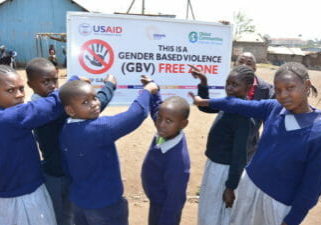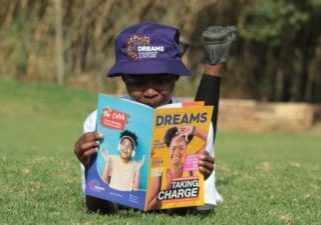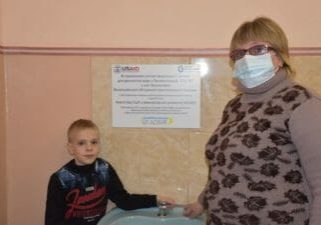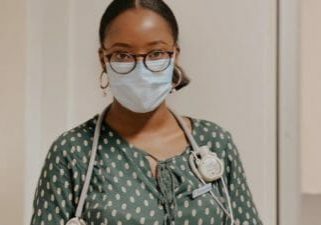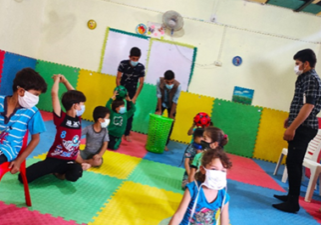News > Blog
‘Orange the World’: Tackling Gender Inequalities Exacerbated by COVID-19
Published 12/09/2020 by globalcommunities
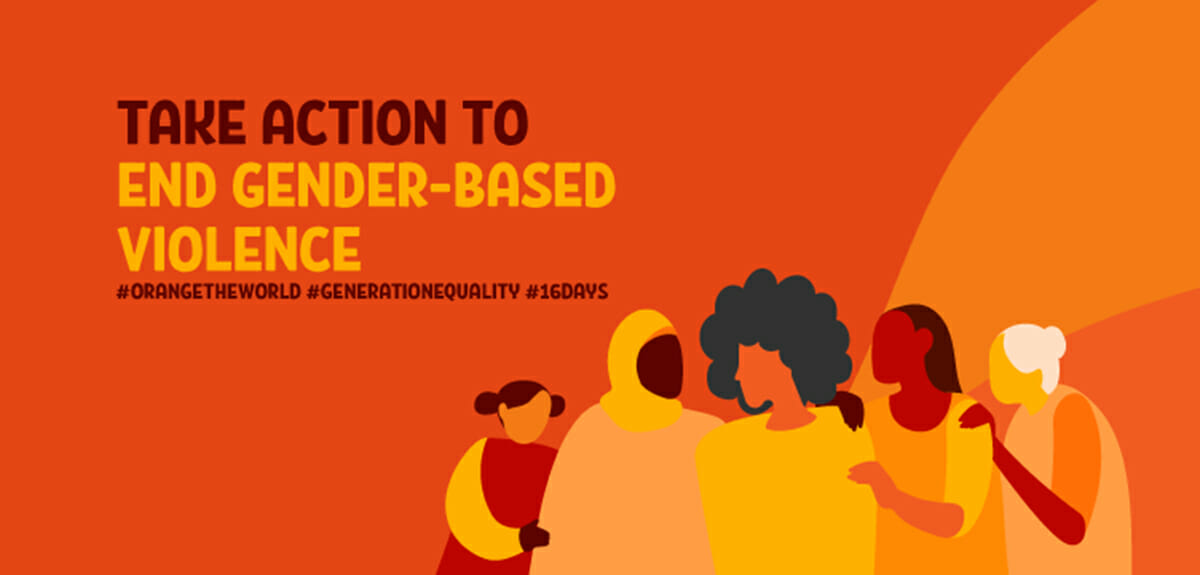
Last year, for the 16 Days of Activism against Gender-based Violence, I shared my observations as a maternal and child nurse working in low-resourced environments. Reflecting on lessons from Ebola, natural disasters and outbreaks of violence, I called for the need for health systems and services to prioritize the needs of women and girls. In the contexts where I have worked, when health services prioritize the most vulnerable, especially marginalized women and girls, services will work for everyone.
Reflecting on this observation a year later, now amid a global pandemic, we are watching the inequities in our system unfold and once again severely impact women and girls. Global modeling exercises and projections estimate an additional 15 million women will be affected by violence, and over 253,000 children and 12,200 mothers will die prematurely as a result of the pandemic. During the pandemic, women have disproportionately left the labor market, setting generations of women back in the fight toward economic prosperity. Millions of children have been affected by school closures increasing the risk that girls, especially the most marginalized girls, may never return to the classroom. However, even as I write this, actual real-time global data on these health outcomes, critical for decision-making and understanding the impact of the pandemic, still lag.
This year’s focus during the 16 Days against Gender-based Violence calls for the global community to fund, respond, prevent and collect. It is a call to action to “bridge funding gaps, ensure essential services for survivors of violence during the COVID-19 crisis, focus on prevention, and collection of data that can improve life-saving services for women and girls.” Now, more than ever, the global community needs to come together and prioritize the needs of women and girls with actions and data for timely resource allocation and decision-making.
The organization I work for, Project Concern International, a Global Communities Partner, like other women-championing international NGOs, observed initial declines in the uptake of essential services through our programs with the onset of the pandemic. We recognized measures required to reduce transmission of COVID-19 (restricting movement and physical isolation) exacerbate risk factors that can lead to violence against women and girls and make it more difficult for women and girls to access essential health services. Many of our programs developed multiple mitigation strategies to ensure continuity of essential life-saving services.
In an honest reflection, we have shared these stories with our data, including our successes and failures, throughout the 16 days of Activism against GBV. However, COVID-19 has highlighted the inequities and disparities in our world. It is clear that the gender inequalities exacerbated by the pandemic cannot be tackled in isolation, and the global community needs to prioritize women and girls in our efforts to build back better and build back equal.
Written by Cara Endyke Doran, Senior Director for Health
 Cara Endyke Doran is the Senior Director for Health at PCI, a Global Communities Partner. She is an advance practice nurse with over 20 years of experience leading large international projects focused on improving the health of women, children and adolescents. She began her career as a community health and environmental promoter with the Peace Corps in Bluefields, Nicaragua. Cara holds both a Bachelor of Science and a Masters of Science in Nursing from the Johns Hopkins University School of Public Health and Nursing.
Cara Endyke Doran is the Senior Director for Health at PCI, a Global Communities Partner. She is an advance practice nurse with over 20 years of experience leading large international projects focused on improving the health of women, children and adolescents. She began her career as a community health and environmental promoter with the Peace Corps in Bluefields, Nicaragua. Cara holds both a Bachelor of Science and a Masters of Science in Nursing from the Johns Hopkins University School of Public Health and Nursing.

